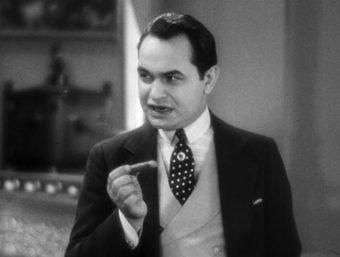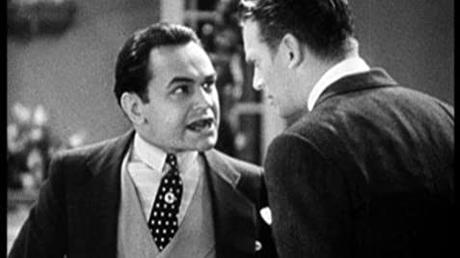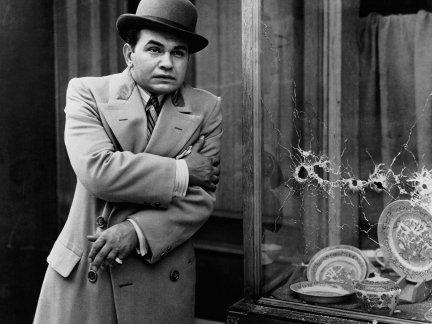Retro Review: 'Little Caesar'
 During the era of Pre Code Hollywood, gangster films proved to be big business for Warner Brothers. As those suffering during the Depression saw gangsters to an extent as folk heroes, it made sense they would want them on the big screen. Many of the gangster pictures during this era have gone on to become certified film classics; the Public Enemy, Scarface, and the 1930 flick we are looking at today Little Caesar.
During the era of Pre Code Hollywood, gangster films proved to be big business for Warner Brothers. As those suffering during the Depression saw gangsters to an extent as folk heroes, it made sense they would want them on the big screen. Many of the gangster pictures during this era have gone on to become certified film classics; the Public Enemy, Scarface, and the 1930 flick we are looking at today Little Caesar.
Wanting to make it big in the underworld of the Windy City, "Little" Caesar Rico Bandello joins an infamous Chicago gang. His fellow criminal Joe, also sets up in town, but he pursues a career as a dancer instead. Reluctantly he is coerced by his old friend Rico to help rob a club which ends in needless violence. Despite the local crime bosses becoming furious at this, the ambitious criminal uses this to climb the criminal career ladder. Through pure toughness and a willingness to leave a body count Rico rises through the ranks, even taking over the city's north side. All the while Joe tries to divorce himself from his old ways. Given that Joe knows enough to put his old friend behind bars for life, a confrontation between he and Rico is inevitable. No matter how things end, Bandello knows he has to go out in a blaze of glory.
For most people Little Caesar stands out in film history for turning its leading man

One of the things working in favor of Little Caesar was the time in which it was made. In what was known as Hollywood's Pre Code era, the enforcers of the Hayes Code lacked the

Little Caesar was one of those films which established the "Gangster movie" in Hollywood. It told the story of an ambitious criminal who rises to power only to fall even harder, paving the way for everything from White Heat to Goodfellas to follow. This is thanks in large part to Edward G. Robinson who gives on of cinema's iconic performances. The impact it has had on moviedom is so significant that it has more than earned it's place in history.

